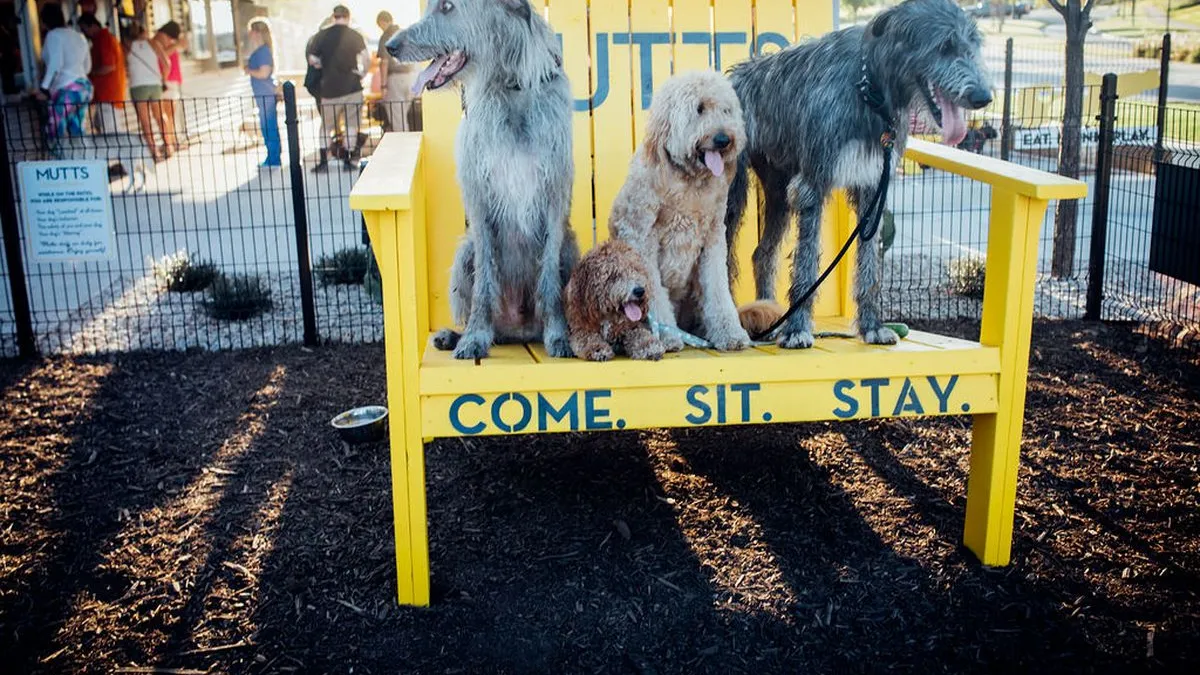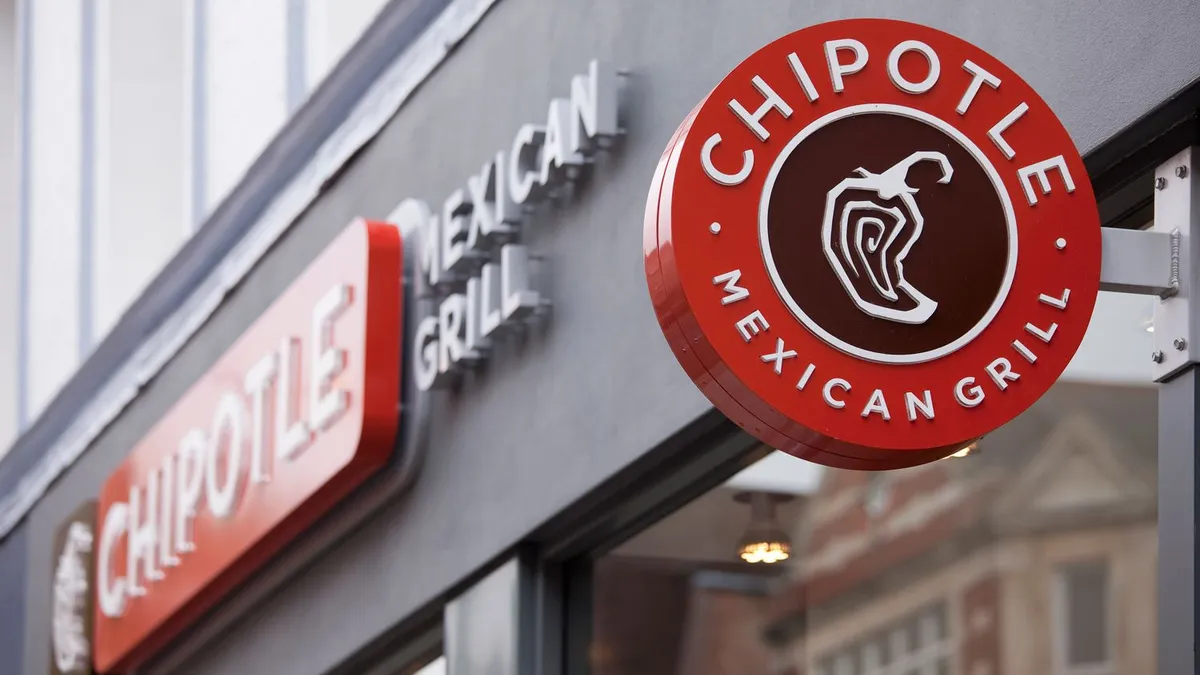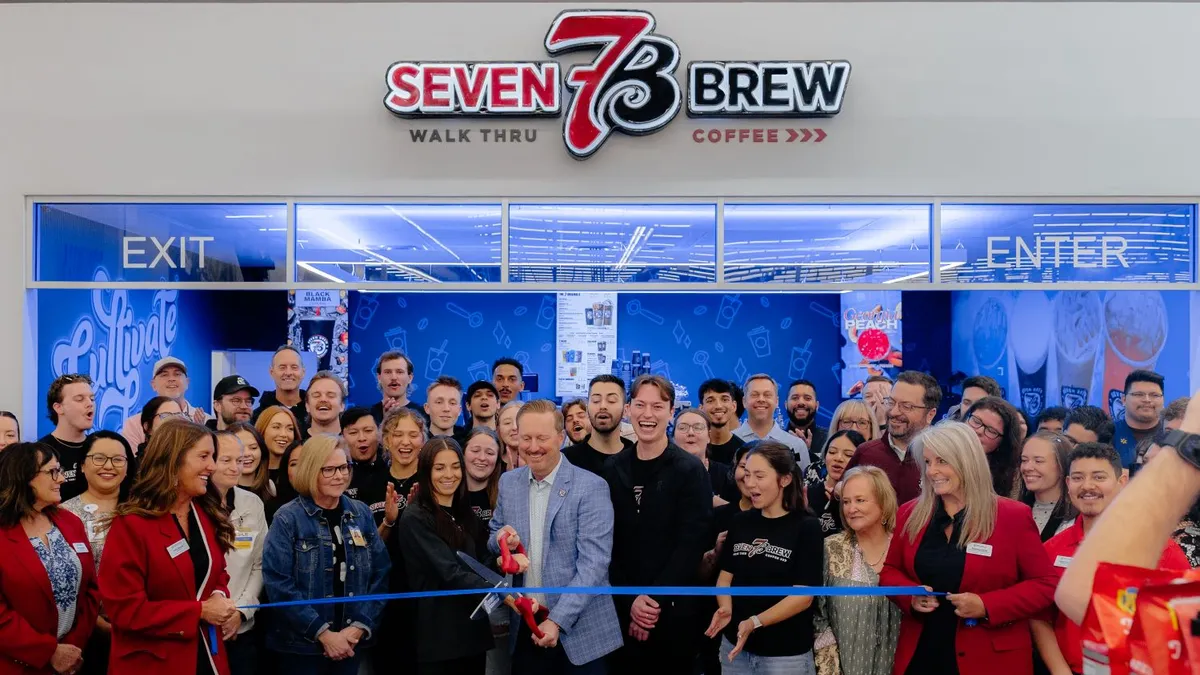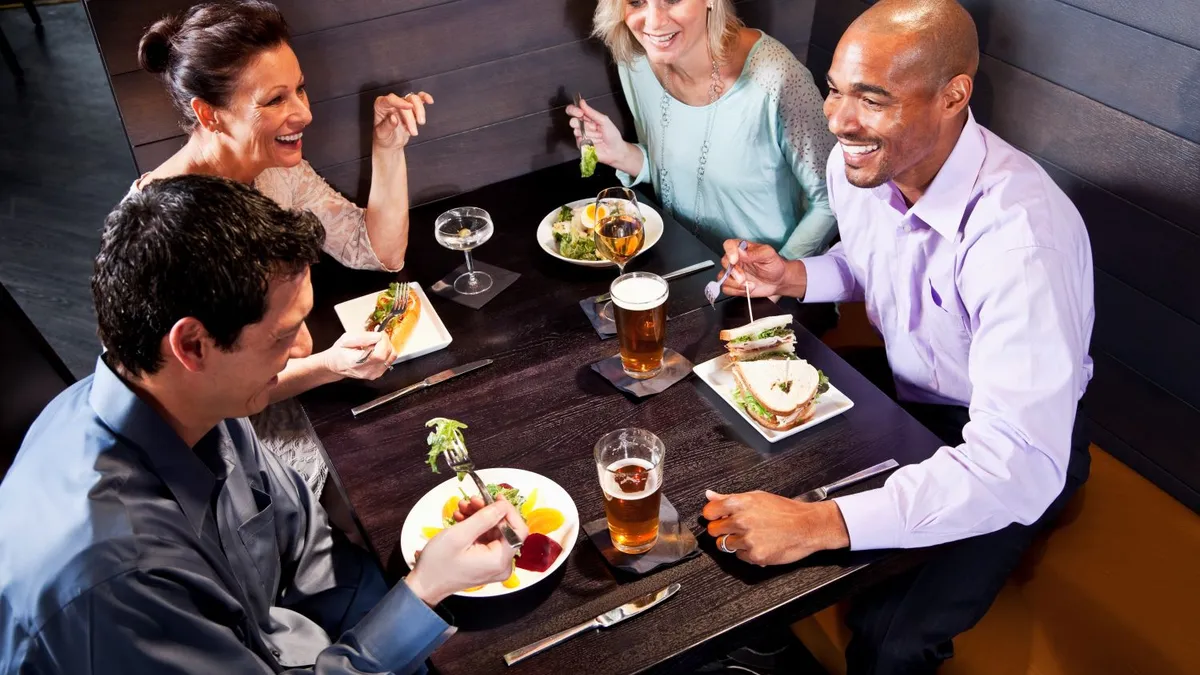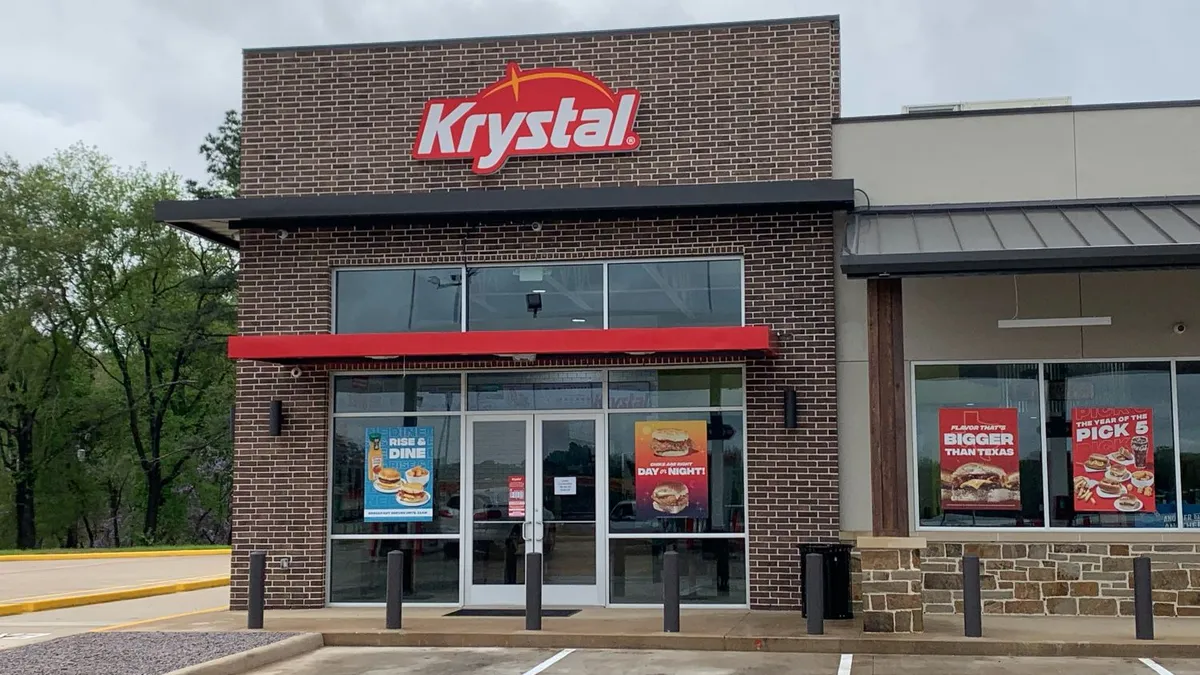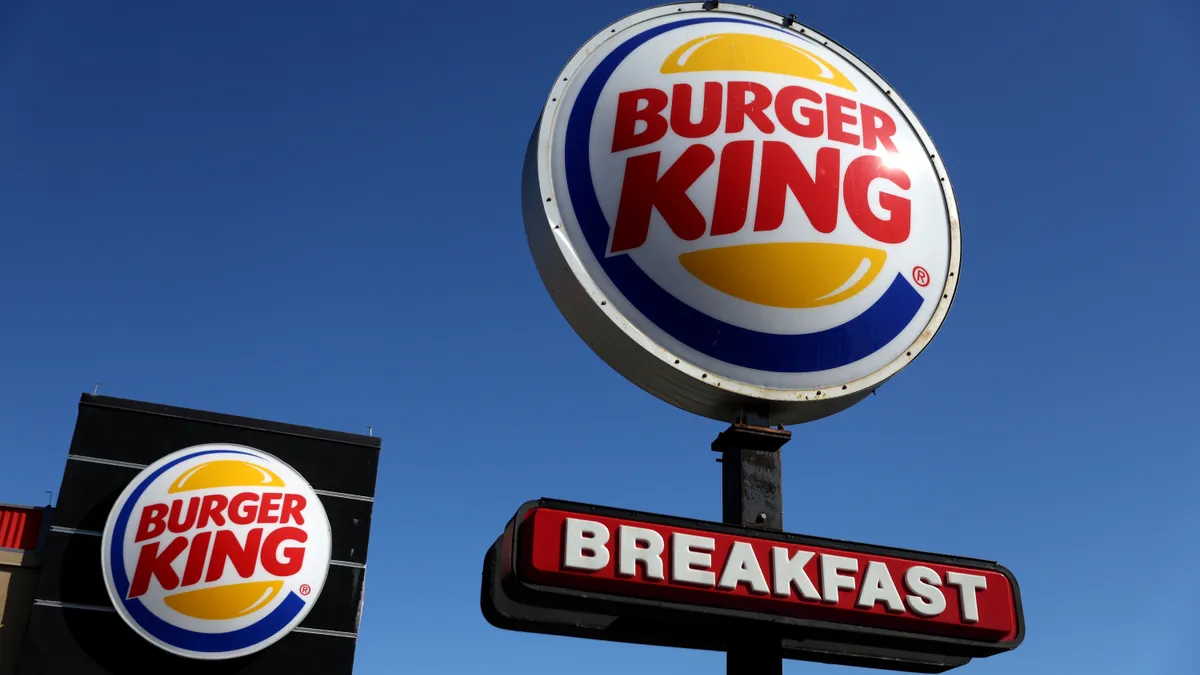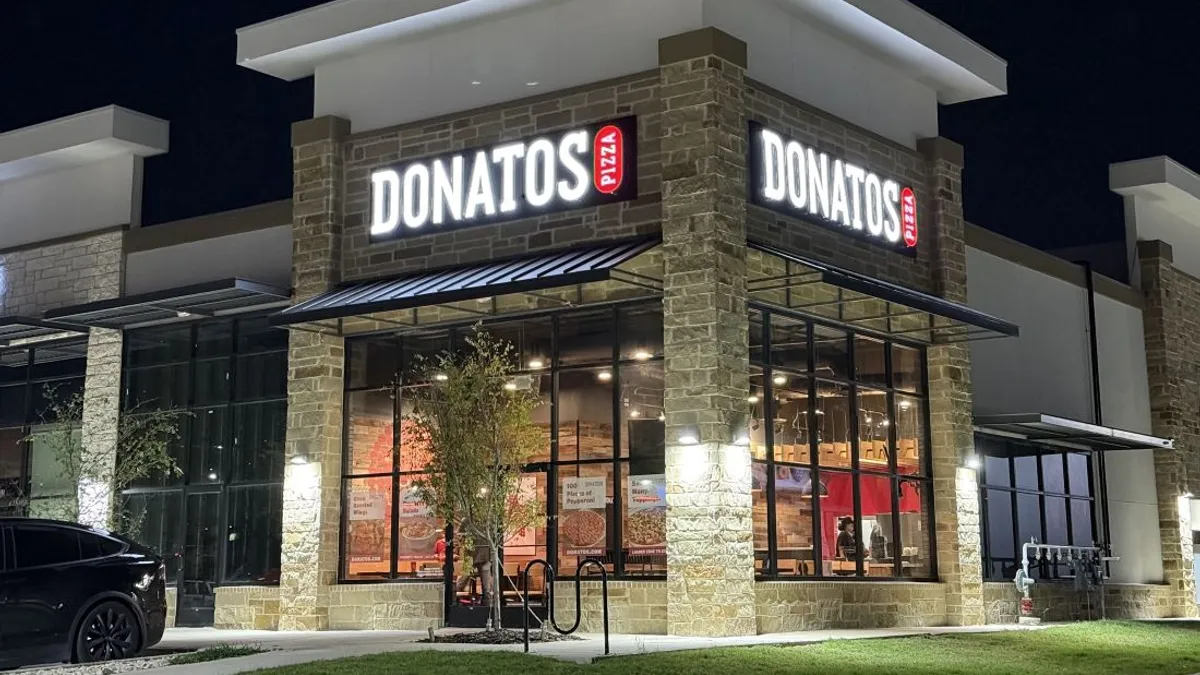Editor’s note: This is the first article in a series that spotlights chains with less than 50 units and the strategies, challenges and lessons learned that have shaped their growth journey.
When Michelle Boggs first took her dog to MUTTS Canine Cantina in Dallas, Texas, in 2014, she was impressed by the dog park that also doubled as a restaurant and bar. Boggs, who has owned a marketing business for about 25 years, immediately saw potential in the concept owned by Kyle Noonan and Josh Sepkowitz, founders of FreeRange Concepts, which has three other restaurant and bar concepts in Texas.
“Something came over me,” she told Restaurant Dive. “I told my husband, ‘Look around you. Everybody is happy. The dogs are happy, the owners of the dogs are happy, and the people working here are happy.’”
The concept offers two dog parks, one for small dogs and one for large dogs, as well as a dog wash, dog birthday parties and a food menu for dogs. For dog owners, there is a cantina with beer and wine, adirondack chairs for lounging and free WiFi.
She knew it was franchisable, but didn’t want to be an operator — she wanted to be a partner. That dream came true two years later after Boggs hit it off with the owners, and Boggs now drives franchising and development for the chain. She helped open the chain’s second location in Fort Worth in 2018. MUTTS also partnered with Fransmart, a franchise development company, that year to kickstart even more expansion. The brand has been rapidly growing since, with additional units in the works in Austin, Allen, Texas and Denver, making it a nine-unit franchise.
In Denver, the cantina partnered with Felice Halliday — who has a background in the hospitality industry and a degree from the Culinary Institute of America — for three units. The concept will meet a growing need in downtown Denver, where dog owners lack enough yard space for dogs to run around, she said in a press release emailed to Restaurant Dive.
“Having somewhere like MUTTS where you can drain your dog’s energy in 20 minutes while relaxing and having a cold beer after a hard day sure makes it a little easier,” Halliday, who is also a dog owner, said.
What makes it unique
Dog park and pub concepts have been growing in popularity, especially in Texas. But MUTTS is expanding in a unique way. Instead of doing a traditional ground-up development involving a general contractor, the company is using prefabricated buildings to create its 1,100-square-foot cantinas. MUTTS builds this way out of necessity, Boggs said.
“Finding a general contractor for a 1,100-square-foot building was just hard to do because the building boom was going on in Dallas and it just wasn’t worth their time,” Boggs said. “They had to charge so much that it wasn’t palatable for our model.”
The company found a vendor that could build the cantinas in a warehouse, have them approved by an inspector for the state where the restaurant would be located, and then disassemble and ship the building in two parts. The total building takes 10 to 12 weeks to assemble, she said. That takes off a tremendous cost and time burden for potential franchisees, she said.
Modular construction and prefab used to be popular in the restaurant industry. Diners were built out of railroad dining cars in the past, for example, according to the Houston Chronicle. Checker’s used to build solely modular units 30 years ago when it was expanding quickly, but switched to traditional construction means when it slowed its pace. In 2018, it restarted this practice with a goal of adding 300 units by 2020 as a way to built its 1,000-square-foot units, costing about $320,000, about 25% less than the cost of a traditional build. MUTTS did not disclose the cost of its modular units before press time.
MUTTS locations typically work in densely populated areas, and multi-use developments that have an office, residential and retail component are ideal sites, Boggs said, adding that multifamily is particularly attractive because it allows for people to walk or drive there.
For example, a cantina set to open in Allen, Texas, in the fall will be located within a large development that has 342 multifamily units, 900 luxury multifamily units and 300 single-family homes in development nearby, according to a press release emailed to Restaurant Dive.
The cantina can also act as an amenity for residents, she said. It also can be developed on any sized parcel as well — its Fort Worth location is on a triangular site — giving developers a way to use a previously undevelopable area, she said.
Lessons learned
While the company has worked out how best to develop these restaurants, its first location also proved to be a learning experience, especially when it came to the layout. The Dallas cantina is on the same side as the dog park, which meant customers had to go through a lot of fencing to get there, she said. That model likely dissuaded potential customers who didn’t have a dog from entering, she said. So for the Fort Worth location, it flipped the model with the cantina in the front.
“We do see a lot of traffic with people eating and not having dogs,” she said. “That has really resonated with the public.”
One of the most complicated parts of its expansion strategy was figuring out how best to approach its technology systems. The company turned to a consultant to help them identify a glaring problem: people were entering the dog park without paying. At the Dallas location, the gate was typically monitored by an attendant, but the gate wasn’t always monitored when the cantina wasn’t open, she said. That meant a lot of people entered the park without paying.
To fix this issue, MUTTS ultimately found a member management program that integrates with its point-of-sales system and also allowed for gate access, she said. The restaurant implemented the system, which allows customers to buy memberships digitally and scan a code at the gate, in September and saw membership go from 600 to 1,200 in Dallas by the end of October, she said.
Challenges going forward
While Fransmart will ultimately give the burgeoning chain a boost going forward, the cantina has to make sure that its processes are set up to ensure that franchising runs smoothly.
“You want to set [franchisees] up … to succeed,” she said. “If they don’t succeed, we don’t succeed.”
Processes and procedures should be documented and franchisees should have access to training and manuals ready so everything is clear, she said. In addition to creating a systemized, turnkey site development process, the company also devised an opening store playbook that helps walk franchisees through what needs to be done from 52 weeks prior to opening down to grand opening, she said.
Finding the right people to help manage franchisees will also be increasingly important, she said.
“It will be really focusing on the right hires as we move forward to be able to make sure those processes are maintained and tweaked when they need to be and keeping our eye on the ball and there are a lot of balls every step of the way,” she said.
The ultimate goal
While the cantina eyes nationwide expansion down the road, it’s currently considering co-weather concepts, especially as it enters regions where weather is not as favorable year round as it is in Texas, Boggs said. That would entail some kind of covering that could allow the park to stay open during snow or rain.
Fransmart is eying 100 units across the country within five years, but Boggs said the land component could hold up expansion. While the cantina takes up little space, the entire concept requires at least an acre, she said.
“We would be happy or ecstatic with 50 units in five years,” she said.



